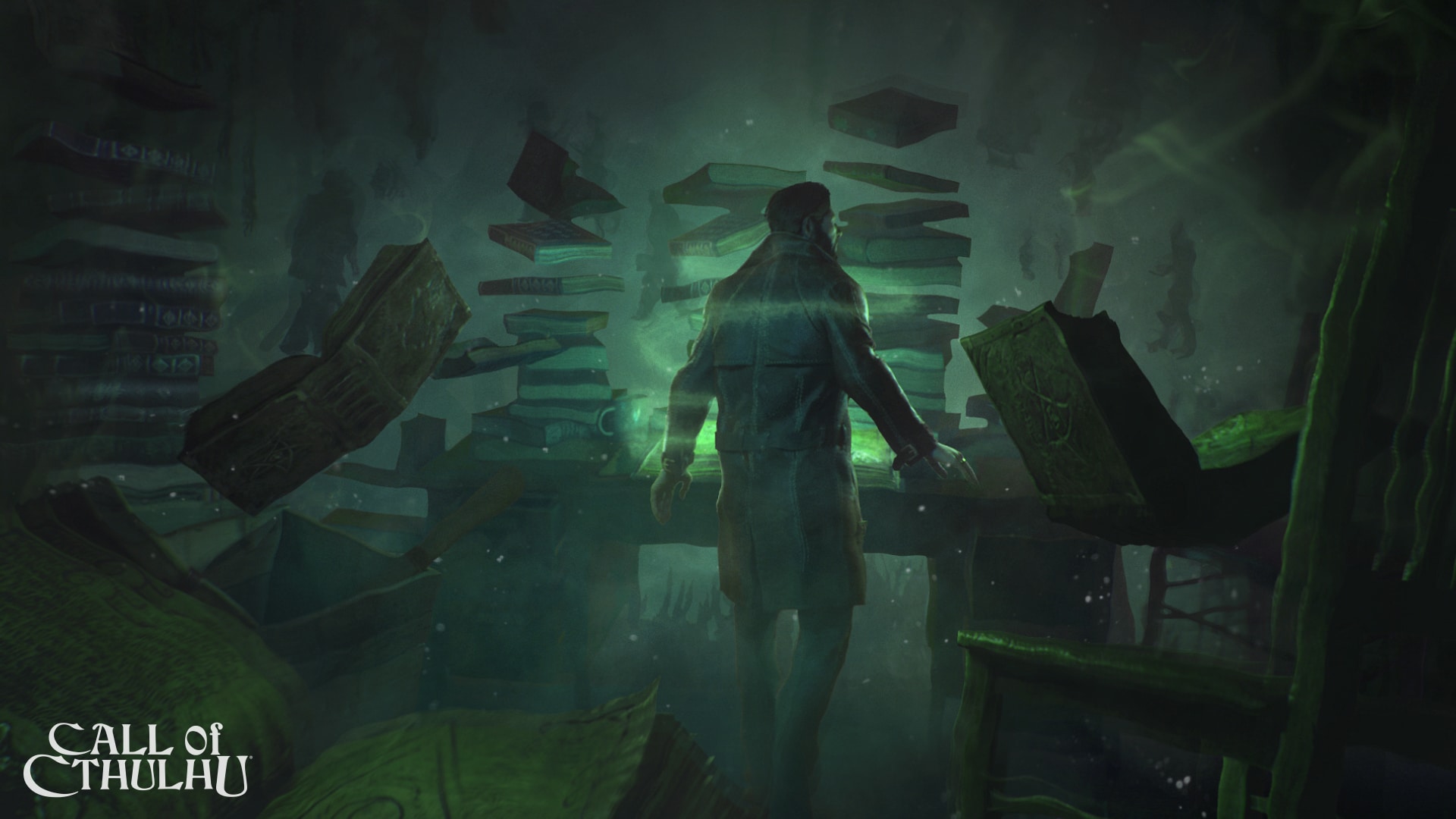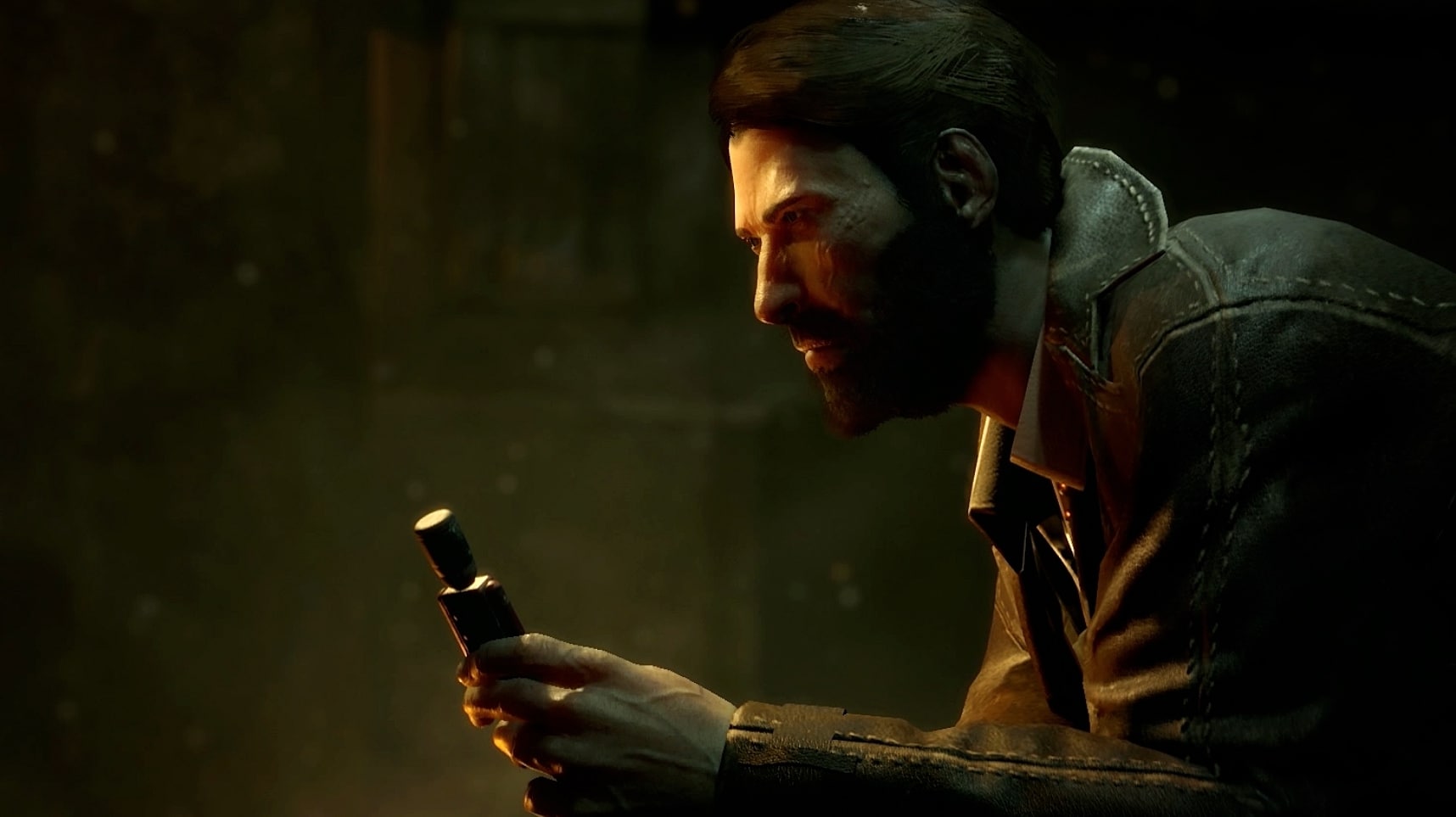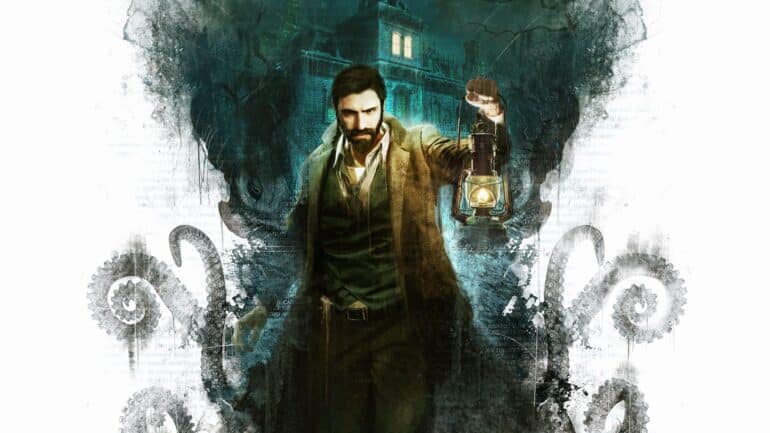The loss of mind is a very scary thing. It’s the main selling point for psychological horror. Why bother being scared of some big bad monster when you can’t even trust your own mind anymore? The information in front of us is subject to skepticism. And with everything we see is met with suspicion, we can no longer function rationally. Such is the dilemma we face in Call of Cthulhu.
HP Lovecraft’s works have always fascinated me. The edge in horror transcends from a purely physical level. Most form of horrors are emulated by grotesque flesh and the promises of pain. But not to this author. Lovecraft was different in the sense that instead of purely relying on gore and spirits to deliver the scares, he tackles the fragility of the human mind.
There are things out there that the human mind may simply not be well equipped enough to understand. It’s in our human nature to be curious. And as such, the answer is like a siren luring us to our unavoidable damnation. We are simply too attracted to the mystery to walk away.

Enter Madness:
I was really excited to play Call of Cthulhu when I first got my hands on it. A childish giddy of excitement in the back of my head as I braved to solve the mysteries of the unknown. The occult fan inside of me very much wanted to see what Call of Cthulhu had to offer.
When I first booted up the game, I was really impressed. Not long after starting a new game I was met with stat bar which I could dump points into to improve my character and change my experience of the game. I had never seen this used much in horror games, if ever. Needless to say I was floored. However, the execution of putting these skills to use in midst gameplay however are a bit of a mixed bag which I’ll talk about later.
I thought Call of Cthulhu started off strong. Playing as private investigator, Edward Pierce, I was sent off to this really bizarre island in England called Darkwater. Well, I say Darkwater but it feels more like a piece of Mordor broke off and somehow made its way into Earth. Even from first glance alone, everything looked dead. My first thoughts were, “who the hell wanted to live here?” But aye, people still lived there.

Without getting too much into details, I was left with an objective to get into Warehouse 36 to investigate a scene that used to belong to somebody who is dead. How I managed to get into it, the game left me to figure that out for myself. And that really excited me. Multiple options to get into the warehouse which can depend on how thorough you are into looking around or how much your skills will help you.
Unfortunately for me, I wounded up spreading Pierce too thin and managed to fuck up more than a few times. Without spoilers, I was forced to take the easiest option which I was sure would have massive consequences down the line later on.
And with that, I felt very interested in what the game had to offer.
Surviving the Madness
Despite what the trailer might look like to you, Call of Cthulhu isn’t an Outlast type of game of run-and-hide till the monsters is away. While it shares many similarities with Amnesia: The Dark Descent, it’s a different breed on its own.
Playing through the game, I quickly found out that Call of Cthulhu isn’t really a survival horror as much as it is more of a narrative type of game. It leans heavily on solving puzzles more so than surviving monster attacks. From each level of the game, it had me trying to piece together the mystery of the game than running for my life.
Funny enough in itself, I only remember ever encountering Lovecraftian monster three times throughout the whole game. Two of which had me running for my life with real danger, and the one encounter being just a jump scare. And it’s really just the same monster. Being solitary, I won’t spoil anything about it but all three encounters against this monster was pieced in an interesting way to defeat it.

Like Amnesia however, Pierce can’t stare too long into it or else he will lose his sanity. I’m not quite sure what the consequences are if Pierce’s sanity hits too low, but judging from the fact that you can see that there’s measure for sanity in the menu it could potentially affect story decisions.
Pierce himself is also scared of hiding in tight corners for too long as well as traversing through them. This also costs him some sanity. But I never really hid long enough in closets or tight spaces for this to truly have an effect. I only ever needed to pay attention to his sanity when hiding in a closet once.
By far the biggest threat I’ve noticed wasn’t any Lovecraftian creature but mundane human enemies. They are encounter far more frequently than any threat and Pierce can either hide or run from them. There’s one chapter in the game that has you pulling out a gun on them but for the most part there is no combat in this game.
In all honesty, the humanoid threats made the game a lot less scary than it should’ve been. I went into it expecting to survive against monsters from the Cthulhu mythos and the only threats I was really surviving against were human beings. A bit disappointing to be honest…
Find The Truth…Or Not
Call of Cthulhu is more for the experience of insanity rather than surviving it. With Pierce as your avatar for exploring the strange events that take place in Darkwater, how you go about it can effect story experience. Though much of this experience relies on which stats you decided to invest in. However, I noticed that some skills were more useful than others.
During my time with Call of Cthulhu, I made the mistake of investing in the Psychology stat which was rarely ever used in the game. Eloquence is by far more useful. It made me wonder why even bother investing in some stats such as Psychology or Strength if they aren’t really that useful.
Earning stats isn’t really anything impressive. You earn it by progressing through the game. At the beginning, you really need to choose your stats carefully as there’s no real way to get them all filled up. Some stats can only be improved upon reading books, such as the Occult stat and the Medicine stat. So be sure to fill those up during the beginning of the game, the only time you’ll be able to distribute stats freely.
Do You Choose To Know The Truth?
Call of Cthulhu really does a good job of making you feel like you fucked up. During my first playthrough, I tried to keep Edward Pierce balanced between sane and psychotic, carefully treading between that thin line. At the end anyway, I wounded up going crazy anyway.

My experience with this game left me a lasting impression that it’s more of a narrative experience. It feels like Telltale with horror elements as I found myself talking to people, making decisions, and solving puzzles rather than running away from monsters. It could be a common misconception about the game if you judge the game from cover alone. That doesn’t mean it’s bad however. It’s just not something for everybody.
With a few noteworthy exceptions, I found myself not too scared of the game. Intrigued, sure; but scared, not really. There was that one time where my heart was really pounding, but that was really just it. If you’re looking for scary game to play, then Call of Cthulhu might not really provide that for you. But if you’re one to be intrigued by the occult, then this game might just be for you.
Disclosure: This review is based on a review code provided by Focus Home Interactive. Read our review policy to know how we go with our game reviews.
